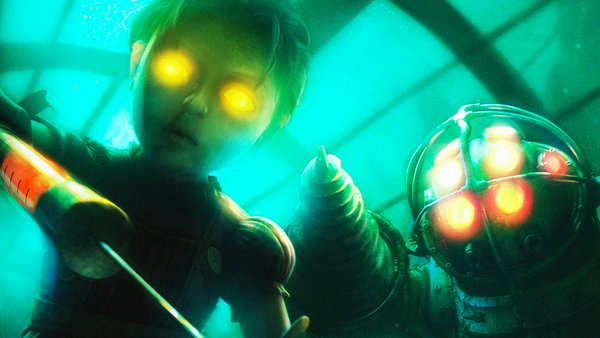Why Bioshock Is Secretly One Of The Best Horror Video Games Ever
No Gods or Kings, Only Terror.

The interactive nature of video games greatly heightens the potential to feel a range of emotions. From the thrilling action scenes of Uncharted to the gut-wrenching narrative notes of Fullbright’'s Gone Home, the intentions of the developer are enhanced hugely by the player’s control over the story's protagonist.
It is perhaps horror that benefits the most from this, as the unsettling story beats that occur and fear-inducing environments are provoked purely by the player's actions. Moments happen not just to the good guy of the film or show, but the player at the helm of the gamepad, so when scary situations are presented, the potential for fear is increased exponentially.
Cheap tricks in the form of jump scares or tense encounters backed by eerie sound design all feed into a game's scary potential, and though ghouls, ghosts, goblins or monsters are a mainstay in contemporary horror, they aren't at all necessary to maintain an unsettling tone.
One such example is Irrational Games' Bioshock. Released from the mind of Ken Lavine and onto shelves in the Summer of 2007, Bioshock tells the tale of the underwater 'utopia' Rapture, and its rapid descent into madness. A plane crash has Jack, the game's protagonist, seek refuge at a nearby lighthouse, and as he finds his way through the city the tense atmosphere and evident fear factor creeps in.
Unlike its survival horror counterparts; titles like The Evil Within, Silent Hill and the (partly) superb Resident Evil series, Bioshock has no truly horrifying antagonist. No baddies with polygonal headwear or evil intentions are present, just an over-ambitious man with a city that's been subject to years of decay. So why, then, is Bioshock still so revered by fans of the horror genre?